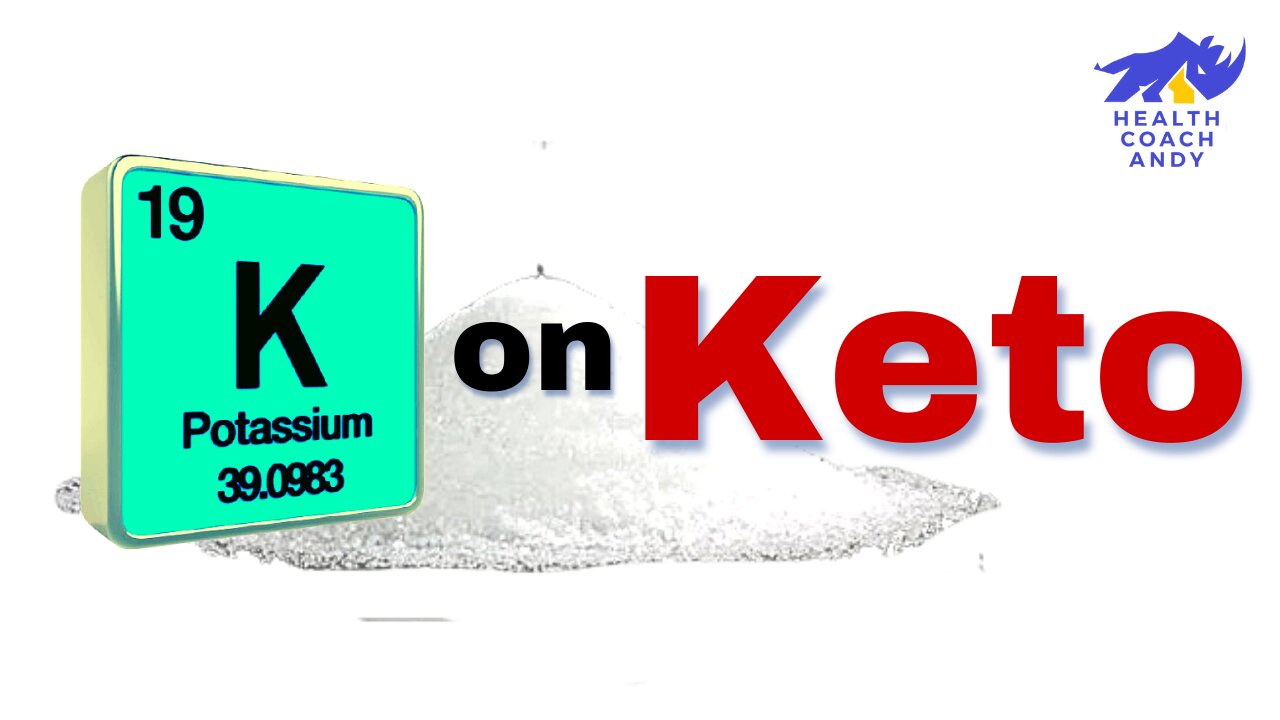Premium Only Content

Potassium - On a Ketogenic or Low Carb Diet
Potassium is constantly getting overlooked in the conversation on salt intake and electrolytes. While it is true that people on low carb and keto diets frequently become deficient in sodium, the message not getting through is that potassium is the extremely important other side of the equation. In simple terms, we need enough sodium to establish and maintain correct water balance ‘outside’ the cell membrane and enough potassium to establish and maintain correct water balance ‘inside’ the cell membrane. In more technical terms, potassium is the principal intracellular cation and adequate amounts are crucial to enable optimal action potential in nerve cells and cellular hydration in general. Either way we express it, it’s crucial in every cell in the body.
We’re not getting enough potassium because our modern, selectively bread foods are much lower in potassium than their ancient forebears, so it seems that particularly in the context of a low carb diet we probably need supplementation. The easiest way for people in this situation to solve this balance discrepancy is to supplement with potassium pills or use cream of tartar. Commercial electrolyte formulas simply don’t have enough potassium. Either the manufacturers haven’t figured that out yet OR they are just too cheap to include enough in the formula. Another issue is that manufacturers typically put sugar in the formulas and that’s understandably not acceptable for many, including myself. Cream of tartar on the other hand is mostly potassium bitartrate and the cheapest most accessible way to get potassium quickly. It’s safe in small quantities because it’s an everyday cooking ingredient. Before I go on, I’d be remiss not to point out the contraindications for potassium, so check with your doctor before potassium supplementation IF you have hyperkalemia, if you’re taking a water pill or "potassium-sparing" diuretic, if you have a kidney condition, if you have a digestive tract disorder or, if you take medications for high blood pressure such as ACE inhibitors or angiotensin receptor blockers.
-
 LIVE
LIVE
Grant Stinchfield
1 hour agoVague Details: An Effort to Avoid Panic Over Drones & "The Research"
311 watching -
 LIVE
LIVE
Barry Cunningham
13 hours agoWATCH LIVE: RFK JR. CONFIRMATION HEARING! ROBERT F KENNEDY JR TESTIFIES BEFORE SENATE
1,785 watching -
 LIVE
LIVE
The Dana Show with Dana Loesch
1 hour agoTHE TRUTH ABOUT TRUMP'S FREEZE | The Dana Show LIVE On Rumble!
516 watching -
 58:59
58:59
The Rubin Report
2 hours agoWatch Stephen Miller Destroy CNN Host’s Narrative with Facts in Only 2 Minutes
26.5K26 -
 LIVE
LIVE
Benny Johnson
4 hours ago🚨Robert F. Kennedy Jr. Confirmation LIVE Right NOW | Fauci and Big Pharma PANIC Over RFK!
20,140 watching -
 2:03:48
2:03:48
LFA TV
18 hours agoRFK CONFIRMATION & MORE! | LIVE FROM AMERICA 1.29.25 11am
33.8K10 -
 LIVE
LIVE
The Shannon Joy Show
2 hours ago🔥🔥Live Exclusive With Dr. Peter McCullough! RFK Jr. Confirmation Coverage & More!🔥🔥
358 watching -
 2:07:01
2:07:01
Steven Crowder
4 hours agoTrump’s Funding Freeze: Fact-Checking the Mainstream Media Lies
296K178 -
 DVR
DVR
Bannons War Room
1 year agoWarRoom Live
110M -
 43:59
43:59
MYLUNCHBREAK CHANNEL PAGE
3 hours agoWho REALLY Built Our Cities?
23.7K9